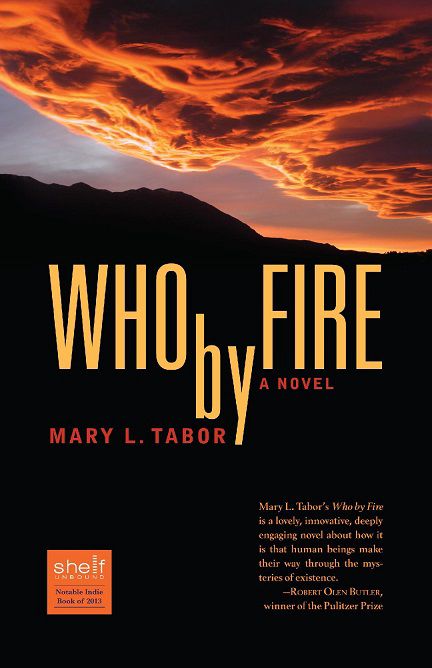October 2017 - Interview with Mary L. Tabor
Hello, everyone. I'm Tonya (tsc0809) and I will be your host for this sixth iteration of the 'virtual' interviews with the very talented Mary L. Tabor (maryltabor). Our lovely setting today is a local coffeehouse that permeates with the most wonderful smell of roasted beans. It's intoxicating, folks!

T: Hi, Mary, thanks so much for being with us. We are so very excited to have this opportunity to probe your creative mind for a while.
MLT: So honored to have been asked. Encouragement is breath to the creative spirit.
T: Since we are in this lovely little cafe, tell us something: are you a coffee drinker and/or a tea drinker? And, if so, how do you take your coffee or tea? I personally love the smell of these places. I find it helps stir my creative juices. So, Mary, coffee...tea?
MLT: Coffee with solitude. Here's why: The need for solitude comes from inside me, perhaps from childhood when reading saved my life. I grew up in a house of illness: my sister, my mother, my father. While I was well and strong, aloneness was thrust upon me. Reading fiction gave me the world and the foundation for the work that was to come.
T: Mary, I recently had the pleasure of reading Who by Fire, which is also featured as the October Book of the Month (BOM). Tell us what inspired this story?
MLT: The search for emotional truth. Here's what I mean: I am the reader for the version of this novel whose main character is Robert. After I'd written the novel, I read it aloud to record it in an NPR studio and realized while hearing myself read it that I had been searching for the man I love whom I must have known on the unconscious level I was losing. That story, its factual account, is in the memoir, here on Wattpad and Amazon and from my publisher, entitled (Re)Making Love. But I'm now convinced that the more powerful emotional truth of that event lies in Who by Fire—though probably not as funny as (Re)Making Love often is: My tale of the good, the bad, and oh so foolish.

T: Why do you say that about the emotional truth of Who by Fire?
MLT: Well, surely I'm heart-baringly truthful in (Re)Making Love (all that foolishness). In Who by Fire, Robert, my main character and I invent this story. He is writing a story he doesn't know: it's a mystery in that sense. He builds the invention based on memory, the past recalled. The need to revisit memory over and over again is part and parcel of being human and alive. Revisiting memory is the way we search for meaning in our lives, for the narrative of who we are and who we might become. Robert is doing this. So, now, I realize, was I. Because memory is flawed, in some sense, we're inventing. But what motivates this call to memory is the search for emotional truth. As writers, we aspire to find that. When fiction rings true like a bell, we believe it. I can hope that I achieved that here. Only my readers can tell me if that is so.
What I do know is this: Robert is risking his life on the page and so am I.
T: Are you saying that risk is key to your process of writing?
MLT: Absolutely. Edmond Jabès, the French philosopher, puts it this way: "If there is no risk, there is no writing." I believe this is the case for every genre. It's certainly so for J.K. Rowling or her books wouldn't have hit the core of the heart so hard. Name any unforgettable book you've read and you will have that sense.
Eudora Welty, whose work I adore, puts the problem this way in The Eye of the Story: "One can only say: writers must always write best of what they know, and sometimes they do it by staying where they know it. But not for safety's sake. Although it is in the words of a witch—or the more because of that—a comment of Hecate's in Macbeth is worth our heed: 'Security is mortal's chiefest enemy.' In fact, when we think in terms of the spirit, which are the terms of writing, is there a conception more stupefying than that of security? Yet writing what you know has nothing to do with security: what is more dangerous? How can you go out on a limb if you do not know your own tree? No art ever came out of not risking your neck. And risk—experiment—is a considerable part of the joy of doing, which is the lone, simple reason all writers of serious fiction are willing to work as hard as they do."
T: Has this always been your approach to writing or has it been an evolution of the sort?
MLT: Yes, in the sense that my novel Who by Fire, my collection of short stories The Woman Who Never Cooked and my memoir (Re)Making Love all say what I call "the unsayable." When I sit down to write, nothing I write could be said at a cocktail party. If you're reading me, you're inside my heart and soul and that's a risky place for any writer to go. But that's what makes the risk worth it.
T: Well, we can certainly see that you take great care to craft your stories, lending to them your own unique voice and style. Who by Fire, for instance, comes across stylistic quite lyrical in nature. Is this piece your musical composition to the world? An ode to music? Music is certainly a theme in this story?
MLT: Robert, who narrates the novel, is a musician and totally focused on music. I had to follow him on that journey even though I am not a pianist. He is. He discovers through memory, through piecing the puzzles of his marriage, through his wife's goodness and her betrayal the story he is telling. He confronts paradox with music, science and a conflagration he witnessed in his native Iowa. Underlying his search is the quest for heroism and for his own father. The story unspools through the memory of a fire and the search for forgiveness. And music is an integral thread in that unraveling spool.
T: Often, writers like to take readers on a journey. Is that what motivates you when telling your stories?
MLT: This may sound solipsistic and I suppose it is: I write to take myself on a risky journey and I hope the reader will follow. I was reading today Three Steps on the Ladder of Writing by Hélène Cixous, a book I used with my grad students. Cixous says, "The only book that is worth writing is the one we don't have the courage or strength to write. The book that hurts us (we who are writing), that makes us tremble, redden, bleed. It is combat against ourselves, the author; one of us must be vanquished or die."
T: Has there ever been a time when you were plagued by writer's block? If so, how were you able to overcome?
MLT: I like to think of down time as a metaphor for birthing. Some stories are a long time coming. I journal and never know where that might lead. So, here's a tip: Save everything. My memoir (Re)Making Love came from that place: I put aside my novel Who by Fire that was close to finished when my husband said after 22 years of marriage, oh-so-Greta-Garbo, "I need to live alone."
That event stopped me in my tracks—and eventually I journaled and then blogged my life while I was living it. That blog turned into the memoir (Re)Making Love that you may read right here on Wattpad—and it won a 2014 Watty Award. That book like Who by Fire is a love story but oddly one that fiction would probably not find credible.
T: Okay, Mary, I don't want to take you away from your busy schedule for too much longer, but there is just one more thing we'd love to know. Are there any new projects that you are working on and can you tell us about them?
MLT: Right here on Wattpad lies my newest project Passing Through: I'm finishing it offline to make sure the narrative knows what it's doing. I wrote the first 14,000 words "live" here almost as if struck by lightning—at least that's how it felt. I'm exploring therapy, adoption, fear and all caps LOVE that, oh dear, means some hurt too, as in "We always hurt the ones we love."
And once again, I tread the fine line between autobiography and fiction. For more on my thoughts on this knotty topic, go to the first essay in my book-in-progress here entitled Writing Tips.
41,000 words of Passing Through are now up—but at some point every novel needs finally to know where it's going and how to get there. In Writing Tips, I'll ultimately cover this thorny problem, meaning, What writers mean about "not knowing" and when that has to change for a narrative to have a beginning, middle and end and find its emotional center to reach the reader in an intimate exchange. I hope that's what's happening in these first 41,000 words. If you take a look at the unfinished manuscript, I'd be honored to hear any thoughts.
T: Mary, it's been such a pleasure spending some time with you today, and we certainly look forward to the journey you continue to take us on. Thanks so much for allowing us access to a little corner of your creative world.
MLT: I recall when I first received your message that you wanted to do this interview and choose the book for your October profile and I suspect you'll recall my reply: "Talk about making my day!" Tonya, I am in your debt. May I add that no writer may fully close the round without readers who read closely and continuously. For all my work here my thanks go out to BG_Davies, OwainGlyn, CarolinaC, daviswin, grapher, RDBrooks, knightwriter, KLCandela, tamoja,
Heatheranno most recently, and with special thanks to zoedinovi at HQ, who found (Re)Making Love when I first began to post here and who has been a supporter and cheerleader, if not fairy godmother. Blessings, Mary.
Bạn đang đọc truyện trên: AzTruyen.Top